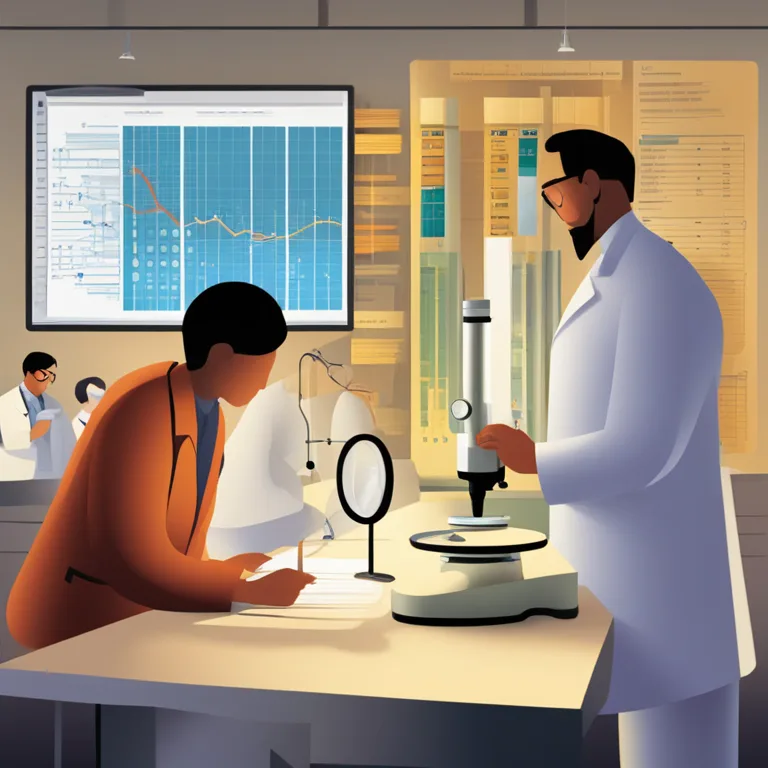
The Reality of Biorhythms: A Critical Look
Are biorhythms a genuine scientific phenomenon or just pseudoscience? This article explores their reality with an analytical perspective for the curious mind.
article by Adrian Wallace
Introduction to Biorhythms
The concept of biorhythms dates back to the 19th century, proposing that our daily lives are significantly influenced by rhythmic cycles. Proponents suggest that understanding these cycles can lead to predictions about a person's performance in various aspects of life, such as physical health, emotional well-being, and intellectual acumen. But how much scientific backing do these theories actually have? This topic remains contentious, with various arguments presented from both supporting and skeptical viewpoints.

Scientific Scrutiny
Upon examining the science behind biorhythms, one quickly discovers a lack of empirical evidence backing the phenomenon. Most scientific studies have failed to substantiate the existence of consistent, predictable biorhythmic patterns influencing human behavior. This has led many in the scientific community to regard biorhythms as pseudoscience. However, the idea continues to captivate the public imagination, suggesting a deeper analysis is warranted.

Biorhythms in Popular Culture
Biorhythms have found a home in popular culture, perhaps owing to the human desire to find patterns in life's apparent randomness. They have been featured in books, apps, and websites, often promising to help users improve their lives by aligning activities with optimal times. This aspect of biorhythms, whether scientifically proven or not, can provide comfort and a sense of control to individuals, driving its popularity in various communities.

Lack of Methodological Rigor
Critical assessments of biorhythm theory often highlight its lack of methodological rigor. Unlike scientifically validated biological cycles, like circadian rhythms, biorhythms do not have clear, reproducible patterns. The methodology used to chart these rhythms is also frequently questioned, as it lacks standardization and often results in contradictory outcomes, further undermining the claims made by biorhythm enthusiasts.

Psychological Placebo Effect
Some experts suggest that any positive effects individuals may experience from following biorhythms are likely due to the psychological placebo effect. The belief in the efficacy of something can lead to changes in perception and behavior, improving someone's subjective experience without any measurable biological change. Thus, biorhythms might offer psychological benefits to some, despite scientific skepticism.
Advancing the Conversation
As we continue into 2024 and beyond, the conversation about biorhythms is evolving. With advances in technology, data analytics, and a better understanding of human biology, there are opportunities for revisiting old theories with fresh perspectives. While current scientific consensus remains dismissive, the potential for new research methodologies may provide future insights into the complex interplay of biological cycles in our lives.
Conclusion and Perspective
In conclusion, while biorhythms have not been validated by the broader scientific community, their cultural impact and personal significance for some cannot be overstated. As with many theories on the fringes of science, further investigation and open-minded discourse are essential. Whether future discoveries will vindicate biorhythm theory or firmly debunk it remains to be seen. For now, curiosity and skepticism should go hand in hand when approaching this intriguing concept.
Published: 12/28/2023
Modified: 12/28/2023
More predictions
Come back here soon to learn more about yourself and your future


Biorhythm Compatibility & Birthdays
Discover the intriguing connection between your birthday biorhythms and relationship harmony in our insightful article.


Biorhythms In Humans Explored
Exploring the concept of biorhythms and their influence on human behavior and physical states.


Biorhythm Theory: Fact Or Fallacy?
Explore the fascinating concept of biorhythms to discern if there's any scientific accuracy behind this popular belief.